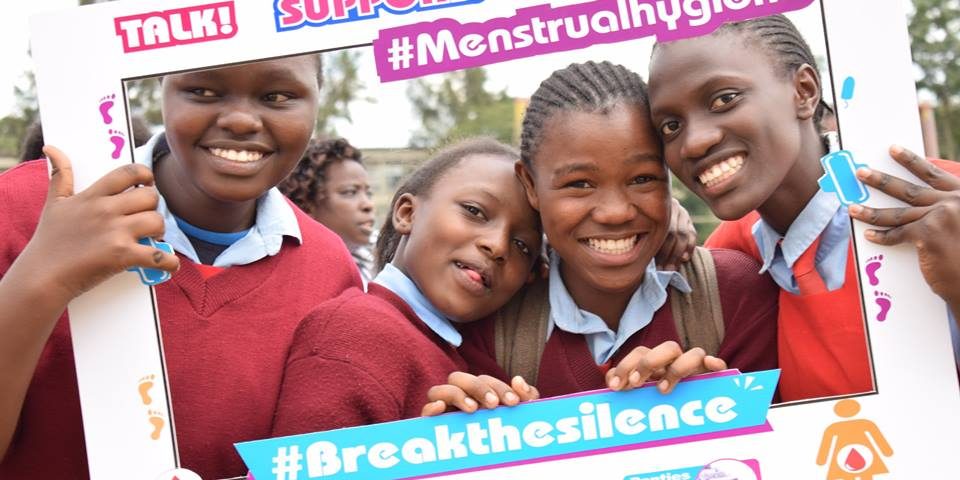Menstruation is one of the most normal biological processes as well as a key sign of reproductive health. Yet, in many cultures today, it is still greatly stigmatized and treated as something shameful or dirty
The continued silence around menstruation, combined with limited access to information at home and in schools results in millions of girls having very little knowledge about what is happening to their bodies when they menstruate, and how to deal with it. This is often accompanied by a lack of sanitary products, services, and facilities to adequately manage the monthly occurrence.
When the United Nations came together to create the Sustainable Development Goals, they were designed to be a comprehensive and inclusive successor to the Millennium Development Goals. There is a total of seventeen goals, ranging from improving nutrition among children, empowering women and girls, and reduced inequalities. The goals are a fantastic platform to lead the world towards a just and equal society for all.
However, there is one critical issue that has been omitted from the SDGs — the issue of addressing menstrual health and hygiene. Menstruation affects half of the global population. It is a topic that all women and girls are intimately familiar with and yet it is so rarely talked about on the global stage. While menstrual health and hygiene may have been excluded from the SDGs, it is an integral component to achieving six of the current goals.
GOAL 3: Ensure healthy lives and promote well-being for all at all ages.
When women and girls aren’t able to access healthy and safe sanitary supplies, they resort to improvising alternative methods, such as rags, leaves, mattress and even newspaper. These methods are not only ineffective but are extremely unhygienic and can lead to serious health issues. Including menstrual hygiene as a critical health issue would teach girls how to manage their periods in a safe way, thus reducing the number of preventable infections and reducing discomfort.
GOAL 4: Ensure inclusive and equitable quality education and promote life-long learning opportunities for all.
Menstruation is one of the leading causes of girls in developing countries missing school. Girls in Kenya will miss an average of five days each month. Many girls choose to stay home because they don’t feel comfortable being in school during their period. If menstrual health information could be included in national curriculums, and thoroughly taught, girls would better understand how to manage their cycles to stay in school. This education would also work to break down the persistent menstrual taboos that prevents girls from attending school.
GOAL 5: Achieve gender equality and empower all women and girls.
The taboos, myths and silence that surround menstruation mean that it is a topic that is usually only whispered about. They portray women as dirty and unclean during their menstrual cycles, teaching girls to feel ashamed of their bodies from a young age, and reinforces the belief that girls are inferior to boys. Women an girls need to manage their menstruation with dignity, without ever having to feel ashamed, or being mocked for her body’s natural rhythms. It is only through conversation and education that these stigmas will be broken down. girls who are more educated, confident, and focused on creating a better life for themselves, families and communities are more likely to move out of the poverty cycle and challenge gender stereotypes and norms.
GOAL 6: Ensure availability and sustainability of water and sanitation by all.
Women and girls need facilities that are safe, clean, and culturally acceptable where they can safely and discretely dispose of their menstrual products. They also require adequate water to safely clean their homemade pads to reduce infection.
GOAL 8: Promote sustained, inclusive and sustainable economic growth, full and productive employment and decent work for all.
Menstruation not only prevents girls from attending school, but also prevents women from attending work. Many cultural practices prevent women from participating in many daily activities (such as cooking and tending to livestock), with the most severe practices forcing women to stay isolated and avoid human interaction during her cycle. If their workplace does not have adequate sanitary facilities, a woman will be unable to manage her cycle and will remain at home. Menstruation shouldn’t have to limit a woman’s ability to work and earn an income. Employers need to ensure that they are offering acceptable sanitation facilities, as well as a work-environment that does not shun women during her period.
To address menstrual health is not only to address the four to seven days a month that women are menstruating, but the root cause of gender disparity. When it is properly addressed, it leads to increased overall health of women and girls. It improves educational outcomes as it improves school attendance. It promotes economic freedom by helping women stay in the workforce, and improves the confidence and dignity of women and girls by teaching them that their bodies are nothing to be ashamed of. Women and girls face enough challenges each day, their own body should never be one of them.
Hope in Action (HIA) network Kenya would like to do more not only in terms of supplying the girls with feminine hygiene products, but also in sensitizing their male counterparts to be supportive and part of the campaign of breaking the silence, rather than succumb to menstruation taboo and afflict the girls’ self-esteem during such a turbulent phase of their lives. We are also keen to find out what can be done about other related challenges girls menstruating may face that require more research and data, in particular, how the lack of access to basic painkillers for menstrual pains and crumps may also influence school attendance rates.



